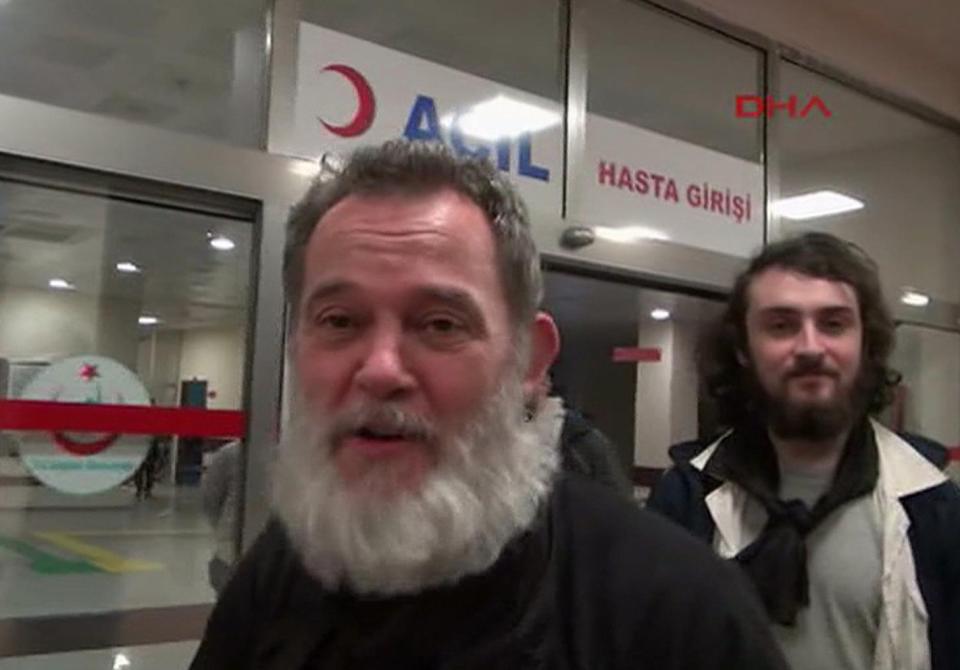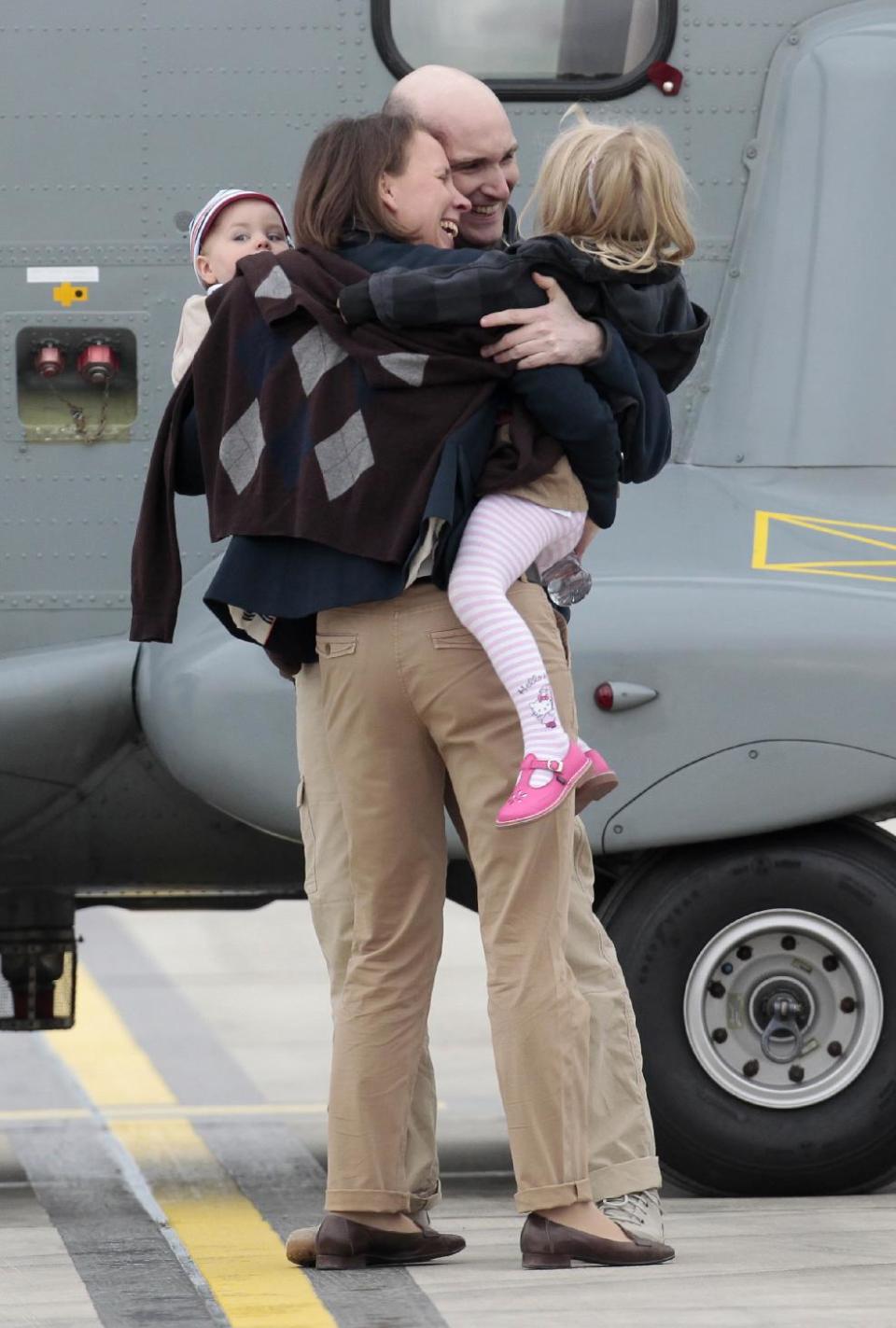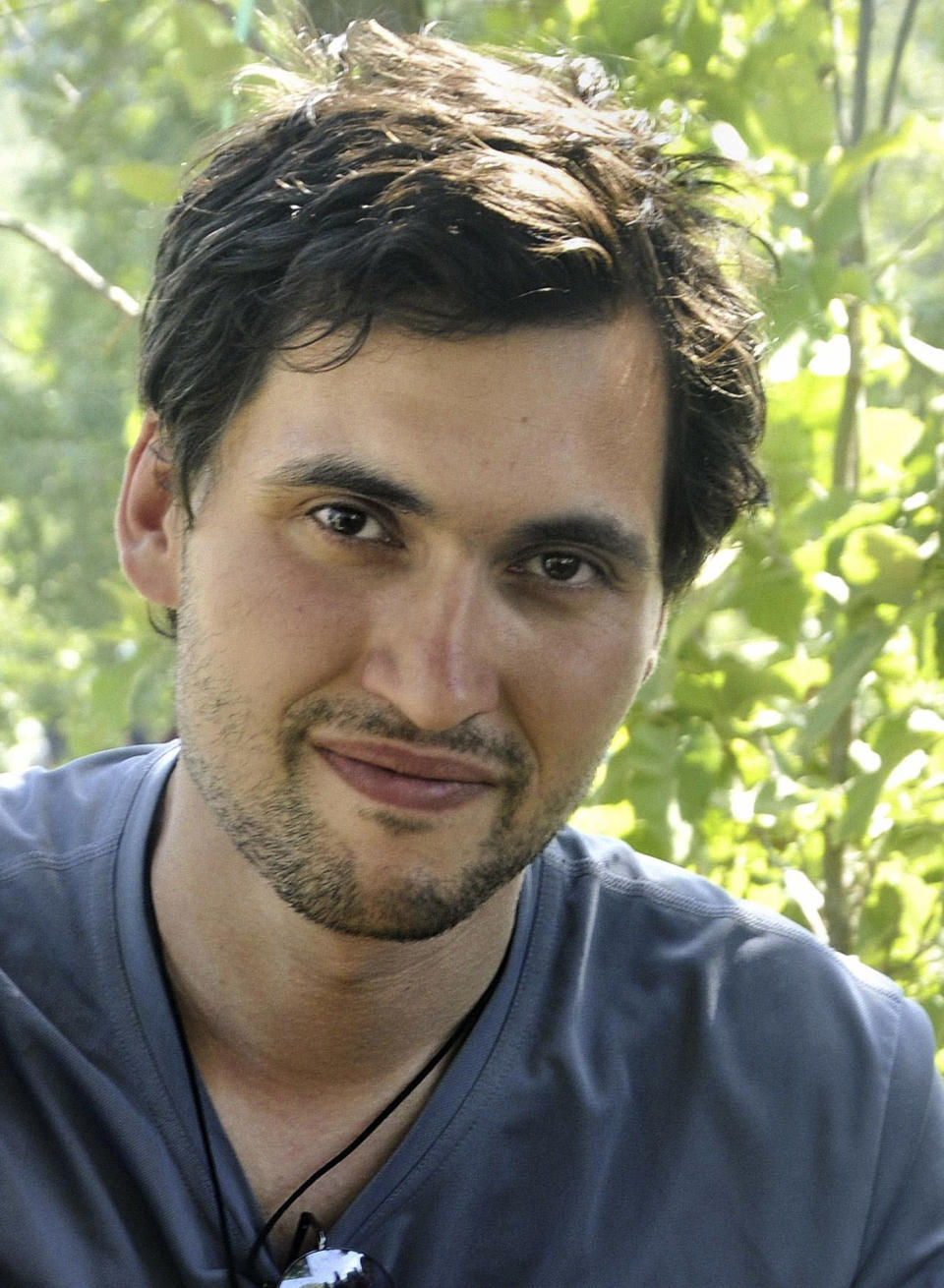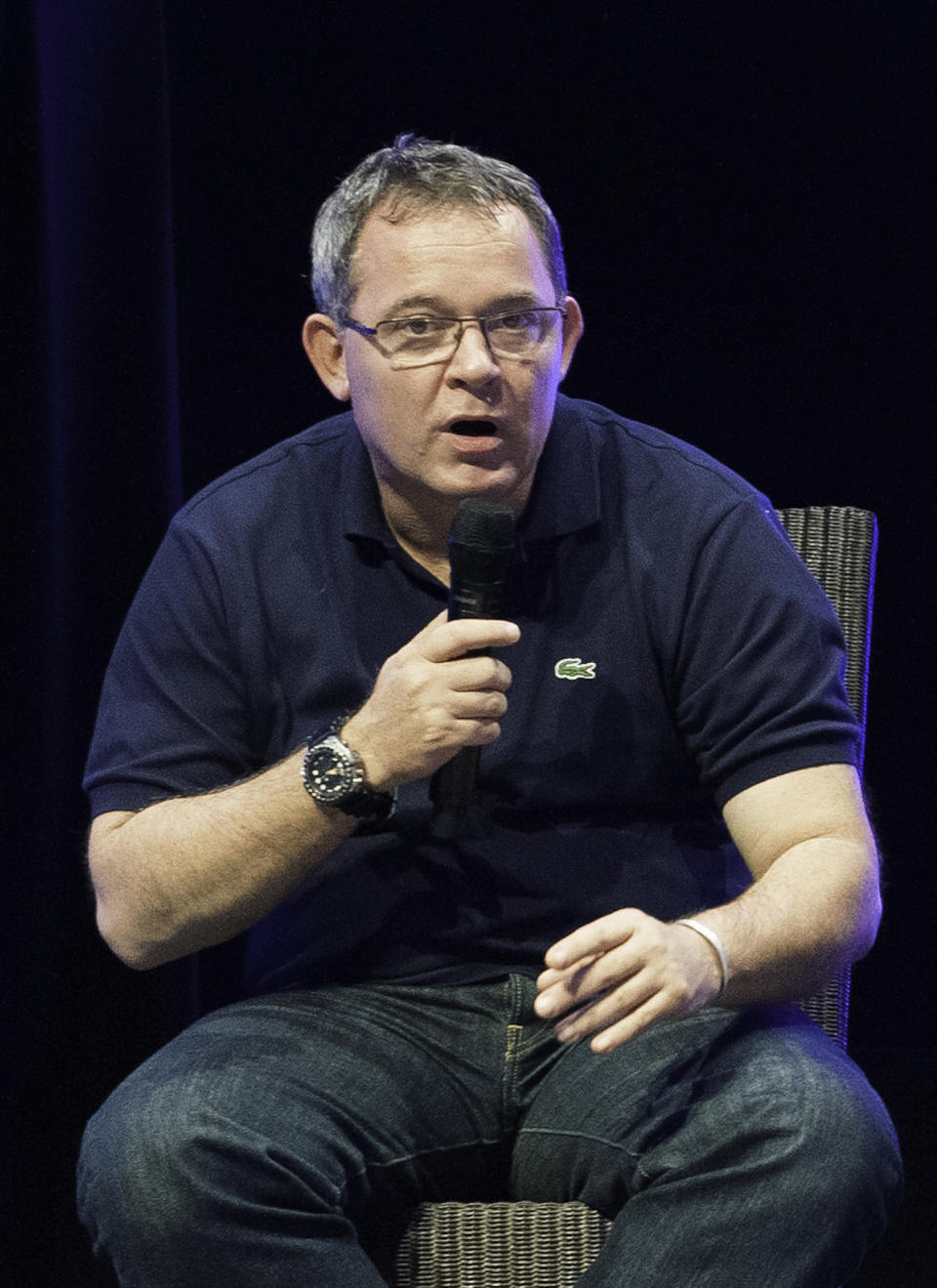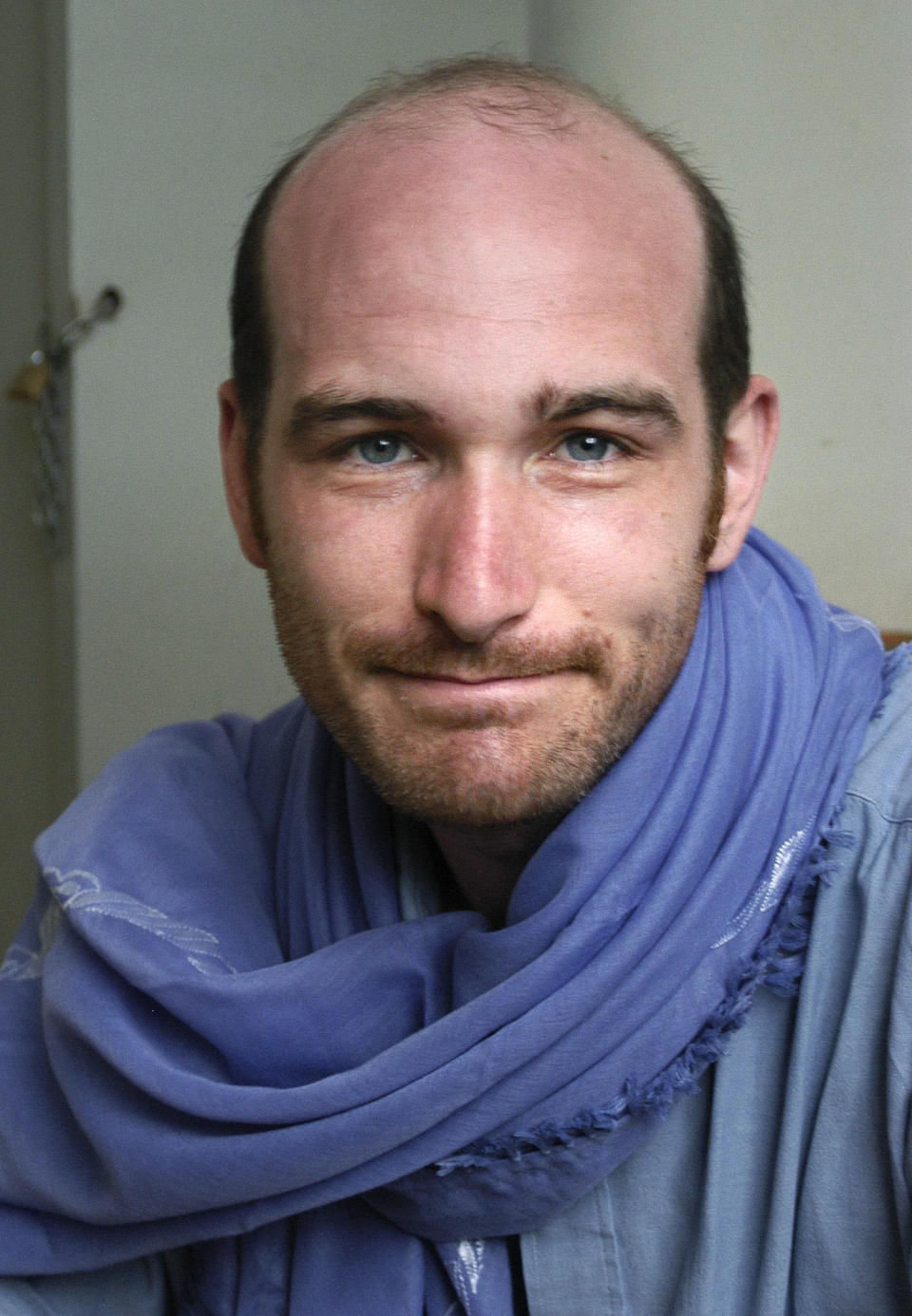4 French journalists back home after Syria ordeal
PARIS (AP) — Four French journalists kidnapped and held for 10 months in Syria returned home on Sunday to joyful families awaiting them at a military airport outside Paris.
The four, Edouard Elias, Didier Francois, Nicolas Henin and Pierre Torres, were freed by their captives a day earlier at the Turkish border. They were captured in two separate incidents last June.
President Francois Hollande, present for the informal welcome ceremony, saluted their return as "a moment of joy ... and pride" for France.
The four arrived by helicopter at Villacoublay military airport after a first touchdown at a base in nearby Evreux where they arrived in a special plane from Turkey. The four were released, and found, in a border area between Turkey and neighboring Syria on Saturday.
"This is a day of great joy for their families ... and a day of great joy for France," the French president said in brief remarks after the four emerged from an air force helicopter.
Hollande saluted Turkish authorities for helping in their return. He did not elaborate.
The journalists' captors have not been formally identified, although the Islamic State of Iraq and the Levant, among the most radical of the multiple radical Islamic groups operating in Syria, is a main suspect.
A Syrian who served as translator and guide for two of the journalists said it was surely that breakaway al-Qaida group that captured them in the eastern province of Raqqa.
Hussam al-Ahmad, 23, told The Associated Press that Henin and Torres aroused the fighters' suspicion after they entered a school and asked to take photographs of the fighters as they played football. The journalists were seized four days after an initial interrogation, al-Ahmad said.
"We never doubted" in an eventual liberation, Francois, in his 50s and a noted war reporter for Europe 1 radio, said in brief arrival remarks. "We are lucky to be French," he repeated several times, evoking the mobilization by diplomats and intelligence agencies.
Francois also justified traveling to Syria, which has become the world's most dangerous conflict for journalists, because of the need to describe the civil war there to the world.
"Our families suffered" for this choice, he said.
Elias, a freelance photographer, also was working for Europe 1 radio. Henin and Torres are freelance journalists.
Henin, his young child in his arms, said in brief remarks that he was "not always" treated well in captivity but did not elaborate.
In an interview earlier with France 24 TV station, Henin said he was held in "about 10 places of captivity, prisons, mostly with other people." He did not identify the jihadi group holding him, referring only to the complexities of the Syrian situation.
Just before being freed, Henin said the group was offered extra food but hardly given time to eat. "Minutes later, they said, 'Let's go. To the border.'"
Syria is considered the world's most dangerous assignment for journalists. The New York-based Committee to Protect Journalists said in April that 61 journalists were kidnapped in Syria in 2013, while more than 60 have been killed since the conflict began.
The widespread abductions of journalists is unprecedented, and has been largely unreported by news organizations in the hope that keeping the kidnappings out of public view may help to negotiate the captives' release. Jihadi groups are believed to be behind most recent kidnappings.

 Yahoo News
Yahoo News 